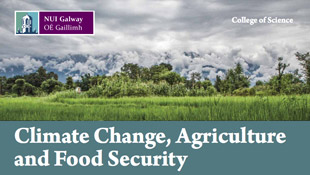-
Courses

Courses
Choosing a course is one of the most important decisions you'll ever make! View our courses and see what our students and lecturers have to say about the courses you are interested in at the links below.
-
University Life

University Life
Each year more than 4,000 choose University of Galway as their University of choice. Find out what life at University of Galway is all about here.
-
About University of Galway

About University of Galway
Since 1845, University of Galway has been sharing the highest quality teaching and research with Ireland and the world. Find out what makes our University so special – from our distinguished history to the latest news and campus developments.
-
Colleges & Schools

Colleges & Schools
University of Galway has earned international recognition as a research-led university with a commitment to top quality teaching across a range of key areas of expertise.
-
Research & Innovation

Research & Innovation
University of Galway’s vibrant research community take on some of the most pressing challenges of our times.
-
Business & Industry

Guiding Breakthrough Research at University of Galway
We explore and facilitate commercial opportunities for the research community at University of Galway, as well as facilitating industry partnership.
-
Alumni & Friends

Alumni & Friends
There are 128,000 University of Galway alumni worldwide. Stay connected to your alumni community! Join our social networks and update your details online.
-
Community Engagement

Community Engagement
At University of Galway, we believe that the best learning takes place when you apply what you learn in a real world context. That's why many of our courses include work placements or community projects.
Climate Change, Agriculture and Food Security (MSc)
Course Overview
![]()
The Masters in Climate Change, Agriculture and Food Security (MScCCAFS) programme provides motivated students with cutting-edge knowledge and skills in climate change, agriculture, and food security.
The course is run with the Ryan Institute in partnership with national and international contributors, including the global network of One CGIAR agricultural research institutes.
Our classes are international and multidisciplinary. We accept students from any background who want to combine scientific, engineering, technical, social or policy skills. MScCCAFS students also complete a research project aimed towards a published outcome. Depending on circumstances, these projects may be completed within the University, of Galway, at students place of work, or through a research collaboration or placement.
Our graduates are equipped to address the deepening climate crisis and build mitigation, adaptation and resilience in the agriculture and food sector globally.The MScCCAFS won the Best New Postgraduate Award (HEA Awards, Ireland) for 2017 (more information here) and was shortlisted for the Best Science Award for 2019.
Our graduates aim to be “Agents of Change” who will deliver significant impacts at scale through their future careers.
Scholarships available
Find out about our Postgraduate Scholarships here. For more information, contact the Course Coordinator.
Applications and Selections
Applications are made online via the University of Galway’s Postgraduate Applications System. Selection is based on the candidate's academic record at an undergraduate level and their passion for the topics of the course. Applications are accepted throughout the year but early application is strongly recommended.
Students with relevant non-academic experience are encouraged to contact the Course Coordinator for information on entry through Recognition of Prior Experiential Learning.
Who Teaches this Course
- Professor Charles Spillane, Programme Director of MSc (AgriFood Sustainability & Technology). E: charles.spillane@universityofgalway.ie
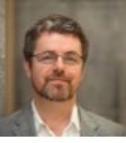
- Dr Galina Brychkova, Programme Coordinator of MSc (AgriFood Sustainability & Technology). E: galina.brychkova@universityofgalway.ie
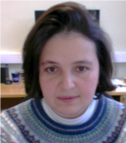
- Prof. David Styles, Lecturer in Life Cycle Assessment

- Dr Anne Mullen, Lecturer in Climate Change, Agriculture & Food Security
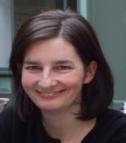
- Dr Peter McKeown, Lecturer in Climate Change, Agriculture & Food Security

- And other members of the multidisciplinary Plant & AgriBiosciences Research Centre (PABC) of the Ryan Institute at University of Galway.
Requirements and Assessment
A range of assessment methods are integrated and applied throughout the MScCCAFS.
These include reports, data exercises, group presentations, online literature tests, and analysis of policy case studies. All students prepare receive communications and career training and produce a publication-style Thesis after their MScCCAFS project.
Key Facts
Entry Requirements
NQAI Level 8 honours degree or equivalent to a minimum standard of Second Class Honours, Grade 1 or equivalent in an appropriate discipline is normally required.
Please see Your Country for country-specific entry requirements. Work experience may also be considered..
Other requirements: proof of identity, academic transcripts, an academic recommendation, Personal Statement (max. 600 words), two-page CV.
All applicants, whose first language is not English, or who have not been educated through the medium of the English language during their two most recent years of study, must present an English language qualification taken within two years of the start of the course. Suggested English language qualifications include IELTS, Cambridge C1 Advanced (CAE), Cambridge C2 Advanced (CPE), TOEFL iBT/TOEFL iBT Home Edition, Pearson PTE and Duolingo.
For more detailed information on the test scores required please refer to this web-page.
Additional Requirements
Recognition of Prior Learning (RPL)
Duration
1 year, full-time
Next start date
September 2024
A Level Grades ()
Average intake
30
QQI/FET FETAC Entry Routes
Closing Date
Please refer to the review/closing date website.
NFQ level
9
Mode of study
ECTS weighting
90
Award
CAO
Course code
MSC-MCA
Course Outline

The MSc in Climate Change, Agriculture and Food Security (MScCCAFS) is run by the School of Biological & Chemical Sciences, and aligned with the Ryan Institute at the University of Galway. The course is supported by many international experts and researchers who act as guest lecturers.
All of our modules are aligned with the Sustainable Development Goals of the UN, especially SDG2: Zero Hunger, SDG13: Climate Action and SDG15: Life on Land. There is also an important focus on social equity, including gender equality and climate justice, and the need for just transitions for rural communities.
These modules are taught by world-leading scientists, thinkers and researchers in their areas of expertise. Students will encounter a wide variety of teaching methods including web-based learning, lectures, exercises, seminars, excursions and group/project work. Students also attend events organised by the Irish Forum for International Agricultural Development.
The MScCCAFS programmehas strong partnership linkages to international development organisations globally, including across the UN System, the Consultative Group on International Agricultural Research (CGIAR) and leading international development NGOs.
You may also be interested in one of our other Science of Sustainability postgraduate programmes.
Why Choose This Course?
Career Opportunities

As the climate change challenge for sustainable development on the planet intensifies, there is a need in all organisations for personnel skilled in both climate change adaptation and mitigation strategies/approaches for the development of greener economies, agrifood systems and low-environmental footprint supply chains. Achieving the Paris Climate Agreement will require transformation of food and agricultural systems worldwide while our farming and rural communities must be helped to adapt to climate change.
Graduates of the MScCCAFS are extremely well positioned for strategic “change agent” positions in research, policy, enterprise, business, administration and other activities across a wide range of public and private sector institutions internationally.
Career mentoring, advice, strategy and facilitation is provided to all students on the MScCCAFS programmeto ensure that they rapidly enter employment in relevant institutions and activities, where they can build from their interests, experience and training. The MScCCAFS programmeat University of Galway has a Theory of Change where the impact of the programme on climate change, agriculture and food security globally is realised through our graduates.
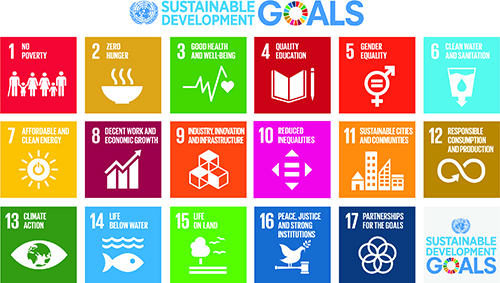
Who’s Suited to This Course
Learning Outcomes
Transferable Skills Employers Value
Work Placement
Study Abroad
Related Student Organisations
Course Fees
Fees: EU
Fees: Tuition
Fees: Student levy
Fees: Non EU
Postgraduate students in receipt of a SUSI grant—please note an F4 grant is where SUSI will pay €4,000 towards your tuition (2024/25). You will be liable for the remainder of the total fee. A P1 grant is where SUSI will pay tuition up to a maximum of €6,270. SUSI will not cover the student levy of €140.
Postgraduate fee breakdown = Tuition (EU or NON EU) + Student levy as outlined above.
Note to non-EU students: learn about the 24-month Stayback Visa here.
Find out More
Professor Charles Spillane
Director of MScCCAFS Program
E: charles.spillane@universityofgalway.ie
Dr Peter McKeown
Co-ordinator of MScCCAFS Program
E: peter.mckeown@universityofgalway.ie

Alexandra Bracken | Graduate, MScCCAFS, 2019
With climate change happening in real time around me, I knew I needed to do something. When I came across the MScCCAFS course it ticked all the boxes in what I wanted to study. This course armed me with the knowledge to transition into the role of a Sustainability and Wellbeing Consultant. I now work with a company that is making strides in developing net zero strategies and reducing carbon emissions from the construction and real estate industries. The course covered so many topics, it also afforded me the opportunity to work with a partner host organisation in Hanoi, Vietnam which was an amazing experience and really opened my eyes to climate injustice. I am using my knowledge from the course to affect change, in the most climate positive way.

Noel Ndlovu | MScCAFFS graduate, 2021
The MSc in Climate Change, Agriculture and Food Security (MScCCAFS) is a well-structured course that provides students with the required skills and tools to become global leaders in innovation for climate adaptation and sustainable agri-food systems. This masters aligned perfectly with my career goals—as it already created opportunities for me to work with various international organisations that support sustainable agri-food systems—including the Food & Agriculture Organisation of the United Nations (FAO in Europe and Central Asia) and the International Maize and Wheat Improvement Center (CIMMYT in sub-Saharan Africa). If you are looking for a postgraduate course that brings together scientific, technological, social and policy aspects of sustainability, I would give my highest recommendation to the award-winning MScCCAFS program at the University of Galway. [LEG4DEV project: https://leg4dev.org/]








